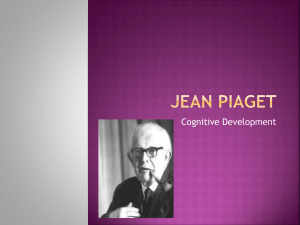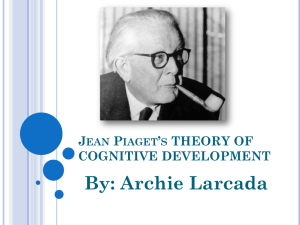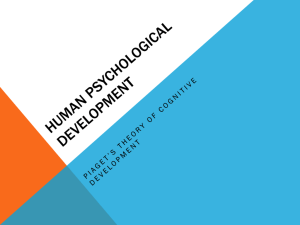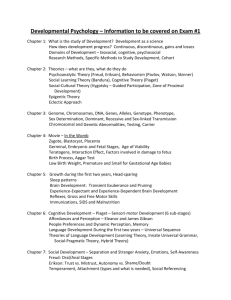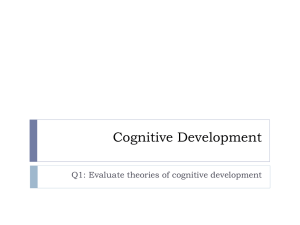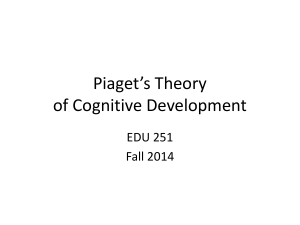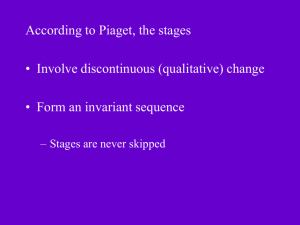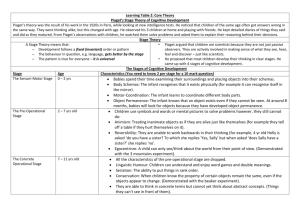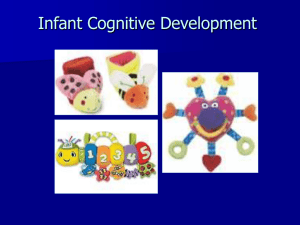8 Piaget
advertisement
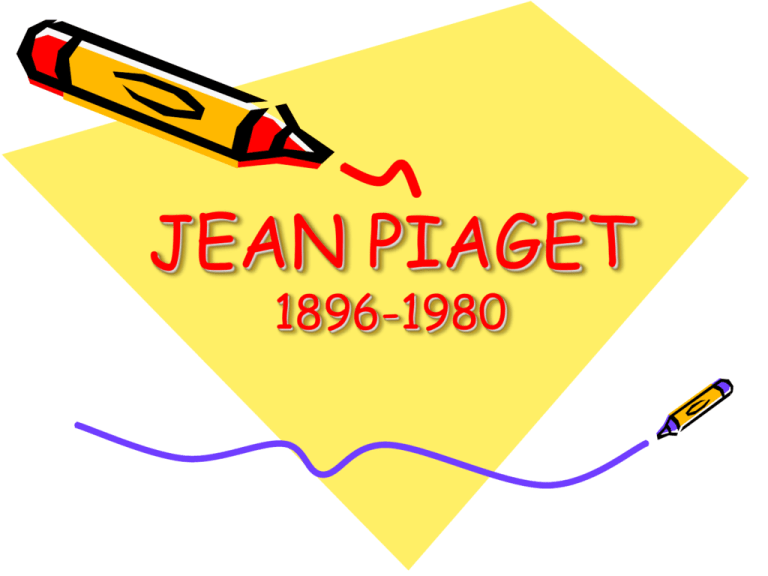
JEAN PIAGET 1896-1980 Cognitive Development • Spent 60 years charting the intellectual growth of children • Children progress from one stage of thinking to another • Children’s thought processes are completely different at different ages • According to Piaget, intelligence is a life process that helps an organism adapt to its environment. • Children actively construct new understanding in their world based on their own experiences. – No inborn knowledge or ideas – Not given information by adults or taught how to think Cognitive Scheme • A cognitive structure, or scheme, is an organized pattern of thought or action that is used to cope with or explain some aspect of experience. • Examples? Cognitive Schemes • assimilation: new experiences interpreted in terms of current cognitive schemes • disequilibriums: contradictions between the child’s understanding and the facts • accommodate: child modifies existing schemes to adapt FOUR STAGES OF COGNITIVE DEVELOPMENT • invariant developmental sequence: all children progress through the stages in the exact order in which they are listed – no stages are skipped – each stage builds on the previous stage and represents a more complex way of thinking SENSORIMOTOR • Birth-Age 2 • Infants use sensory and motor capabilities to explore and gain a basic understanding of the environment • Acquire a primitive sense of “self” and “others” • Imitation: 8-18 months • Deferred Imitation: 18-24 months • Object permanence • Begin to internalize behavioral schemes Object Permanence Object Permanence Object Permanence PREOPERATIONAL • Ages 2-7 • Children use symbolism (images and language) to represent and understand aspects of the environment • Thought is egocentric: children think everyone sees the world the same way that they do • Conservation vs. Reversibility (not yet) • Imaginative in play CONCRETE OPERATIONS • Ages 7-12 • Cognitive operations: children acquire and use components of logical thought – – – – no longer fooled by appearances understand basic properties and relationships understand conservation and reversibility can begin to infer motives by observing other’s behavior Conservation Conservation Conservation FORMAL OPERATIONS • Age 12 –beyond • Thinking is now systematic and abstract • They can operate on operations, or “think about thinking” • Can ponder hypothetical issues • Systematic, deductive reasoning to problem solve PIAGET • • • • Major influence in educating educators “curious, active children” “individualized discovery learning” “…assessing the impact of Piaget on developmental psychology is like assessing the impact of Shakespeare on English literature or Aristotle on philosophy— impossible.” (Beilin, 1992)
